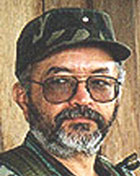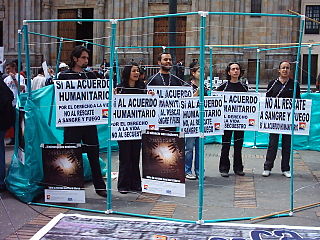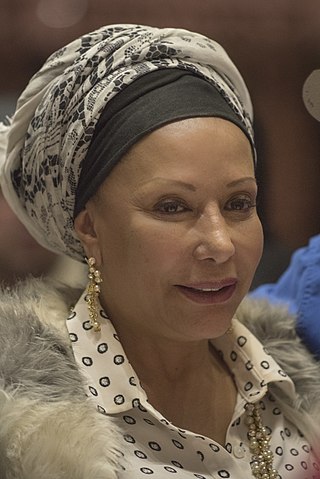Related Research Articles

The Revolutionary Armed Forces of Colombia – People's Army is a Marxist–Leninist guerrilla group involved in the continuing Colombian conflict starting in 1964. The FARC-EP was officially founded in 1966 from peasant self-defense groups formed from 1948 during the "Violencia" as a peasant force promoting a political line of agrarianism and anti-imperialism. They are known to employ a variety of military tactics, in addition to more unconventional methods, including terrorism.

Álvaro Uribe Vélez is a Colombian politician who served as the 31st President of Colombia from 7 August 2002 to 7 August 2010.

The Popular Liberation Army is a Colombian anti-revisionist Marxist–Leninist guerrilla group created in 1967. Most of its former members demobilized in 1991, forming the Esperanza, Paz y Libertad party, but a dissident faction, formerly led by Megateo, known as "Los Pelusos", continue operating. On June 22, 1994, Francisco Caraballo, First Secretary of the Communist Party of Colombia (M-L) and Commander in Chief of the People's Liberation Army, was arrested along with his wife, son and several other EPL members. Víctor Ramon Navarro Cervano, alias "Megateo," the leader of the last faction of the Popular Liberation Army (EPL), was killed in a military and police operation in Norte de Santander department in 2015. On December 15, 2016, Megateo's successor Guillermo León Aguirre, alias “David León,” was captured in Medellín. 40 days after the capture of David León, the body of his successor Jade Navarro Barbaso, alias “Caracho,” was still not found after disappearing.

El Espectador is a newspaper of national circulation within Colombia, founded by Fidel Cano Gutiérrez on March 22, 1887, in Medellín and published since 1915 in Bogotá. It transition from a daily to a weekly edition in 2001, following a financial crisis, and again with a daily released since May 11, 2008, a comeback which had been long rumoured, in tabloid format. From 1997 to 2011 its main shareholder was Julio Mario Santo Domingo.
Fidel Antonio Castaño Gila.k.a.Rambo was a Colombian drug lord and paramilitary who was among the founders of Los Pepes and the Peasant Self-Defense Forces of Cordoba and Uraba (ACCU), a paramilitary group which ultimately became a member of the larger United Self-Defense Forces of Colombia (AUC) from which he became its leader until his death in 1994. He was also the brother of Vicente Castaño, the presumed chief of the narco-paramilitary group Águilas Negras, and Carlos Castaño Gil, founder and leader of the AUC paramilitary forces until his death. He is the grandfather of Gabriella Castaño. There is a theory that Fidel Castaño is still alive as there is no proof of him being dead and was the one that also killed Victor “Chepe” Crespo.

Marta Noemí del Espíritu Santo Sanín Posada is a Colombian-born politician and diplomat. She was the Conservative party candidate in the 2010 Colombian presidential election.

Luis Edgar Devia Silva, better known by his nom de guerreRaúl Reyes, was a leader, Secretariat member, spokesperson, and advisor to the Southern Bloc of the Revolutionary Armed Forces of Colombia–People's Army (FARC–EP). He died during an attack by the Colombian army 1.8 kilometres (1.1 mi) within Ecuador, sparking the 2008 Andean diplomatic crisis involving Ecuador, Colombia and Venezuela.
The FARC-Government peace process (1999–2002), from January 7, 1999, to February 20, 2002, was a failed peace process between the Government of President Andrés Pastrana Arango and the Revolutionary Armed Forces of Colombia (FARC) guerrilla group in an effort to bring to an end the ongoing Colombian armed conflict.

Jorge Luis Ochoa Vásquez is a Colombian former drug trafficker who was one of the founding members of the Medellín Cartel in the late 1970s. The cartel's key members were Pablo Escobar, Carlos Lehder, José Gonzalo Rodríguez Gacha, Gustavo Gaviria, Jorge Ochoa, and his brothers Juan David and Fabio.

Juan Manuel Santos Calderón is a Colombian politician who was the President of Colombia from 2010 to 2018. He was the sole recipient of the 2016 Nobel Peace Prize.

Kidnappings in Colombia refers to the practice of kidnapping in the Republic of Colombia. This criminal practice was first introduced in modern Colombian history during the early 1970s by the guerrilla movements and, later, also by criminal groups. With the release of Colombian presidential candidate Ingrid Betancourt on July 2, 2008 this practice gained worldwide notoriety.

Piedad Esneda Córdoba Ruiz was a Colombian lawyer and politician who served as a senator from 1994 to 2010. A Liberal Party politician, she also served as a member of the Chamber of Representatives of Colombia for Antioquia from 1992 to 1994.

Rodrigo Londoño Echeverri, most known under the nom de guerreTimoleón Jiménez and the nickname Timochenko or Timochenco, is a Colombian politician, cardiologist and former commander-in-chief of the rebel group Revolutionary Armed Forces of Colombia, currently serving as the president of its political successor Commons following the Colombian peace process.

Gilberto Echeverri Mejía was a Colombian electrical engineer, businessman and politician who on 21 April 2002 was kidnapped by the Revolutionary Armed Forces of Colombia - FARC-EP along with the then-Governor of Antioquia Guillermo Gaviria Correa among others while participating in a peace walk and held hostage until 5 May 2003 when he was murdered by the guerrillas during a botched rescue operation by government forces deep in the Colombian northwestern jungle, bordering between Antioquia and Chocó. A Liberal party politician, he had previously served as Ambassador of Colombia to Ecuador from 1975 to 1977 in the Administration of President Alfonso López Michelsen, Minister of Economic Development from 1978 to 1980 in the Administration of President Julio César Turbay Ayala, Minister of National Defence from 1997 to 1998 in the Administration of President Ernesto Samper Pizano, and was working as peace advisor to Governor Gaviria before he was kidnapped.

Aníbal Gaviria Correa is a Colombian politician who has served as the governor of Antioquia since 2020. Prior to this, Gaviria was the Mayor of Medellín from 2012 to 2015 and served as a visiting scholar at University of California, Berkeley. He previously served as Governor of Antioquia from 2004 to 2007.
El Mundo is a newspaper and news website based in Medellín, Colombia. It started circulating in Antioquia on April 20, 1979 and was founded by a group of business leaders and journalists. After circulating as a daily newspaper for 39 years, the newspaper switched to a weekly printed edition with daily digital emissions in 2018.

Organised crime in Colombia refers to the activities of various groups of drug cartels, guerilla groups, organised crime syndicates or underworld activities including drug trafficking, contract killing, racketeering and other crimes in Colombia. Colombia has seen the rise and fall of drug empires, crime syndicates and organised guerrilla groups, all of which having contributed to the varying forms of organised crimes having occurred in Colombia.

El General Naranjo is a Colombian crime drama television series created by Anita de Hoyos and produced by Fox Telecolombia based on the book El general de las mil batallas written by Julio Sánchez Cristo. The series revolves around Óscar Naranjo, a Colombian general who was very influential in ending drug trafficking in Colombia and destroying Pablo Escobar and his army of criminals. The series premiered in Latin America 24 May 2019 on Fox Premium, and during its premiere Fox released the full episodes through its subscription app, the full seasons can be viewed all by subscription, while Fox airs one episode on television every Friday, except for the second season, which aired the last episode on a Saturday.

Álvaro Uribe's term as the 31st president of Colombia began with his first inauguration on August 7, 2002 and ended on August 7, 2010. Uribe, candidate of the Colombia First party of Antioquia, took office after a decisive victory about the Liberal candidate Horacio Serpa in the 2002 presidential election. Four years later, in the 2006 presidential election, he defeated the Democratic Pole candidate, Carlos Gaviria, to win re-election. Uribe is the first president not to represent either of the two traditional parties, Liberal and Conservative.
References
- 1 2 3 Gaviria Correa, Guillermo (2010). Diary of a Kidnapped Colombian Governor. DreamSeeker Books. ISBN 9781931038720.
- ↑ "Guillermo Gaviria Correa, una carrera por la paz". Semana. Retrieved 28 November 2011.[ permanent dead link ]
- 1 2 3 4 "Colombia recuerda los 5 años de la muerte de Guillermo Gaviria, Gilberto Echeverry y 8 soldados". Caracol Radio News, Colombia. Archived from the original on 1 January 2013. Retrieved 28 November 2011.
- 1 2 Wikiversity:Nonkilling Leadership Lessons from Guillermo Gaviria
- 1 2 Paige, Glenn (2007). Global Nonkilling Leadership. Creative Commons. pp. 233–237. ISBN 978-1-880309-11-7.
- ↑ "Cómo gobernar bien: Experiencias de los mejores alcaldes y gobernadores de Colombia" (PDF). Colombia Líder. Archived from the original (PDF) on 26 April 2012. Retrieved 28 November 2011.
- ↑ Moreno, Luis Alberto (August 19, 2004). "After a dark period, a better Colombia". The Boston Globe. Retrieved 28 November 2011.
- ↑ "Guillermo Gaviria Correa, una carrera por la paz". Semana. Retrieved 28 November 2011.[ permanent dead link ]
- ↑ "Guillermo Gaviria Correa". Peace & Conflict Monitor. Archived from the original on 27 September 2011. Retrieved 28 November 2011.